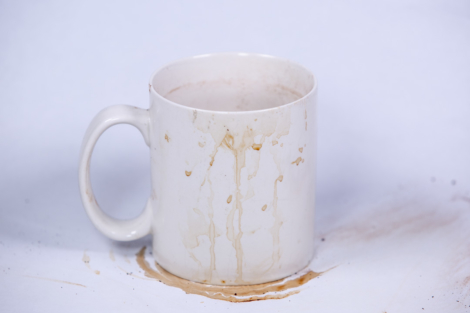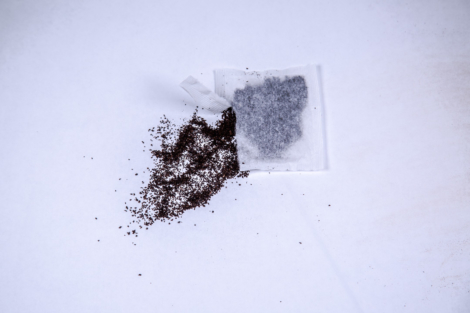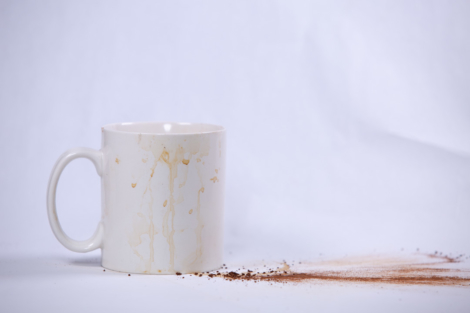I had a rough morning last week. I woke up feeling extra groggy due to the lack of sleep I’d received the night before: time that I’d spent reading all night, as the typical student does. I felt like a mess — partially because I was. I kept hitting snooze and, before I knew it, I got out of bed with only 15 minutes left to get ready.
I frantically got dressed only to end up looking only half put-together. After a long morning commute where I nearly fell asleep on the subway, I realized that I even managed to forget a book for my English tutorial. I was in desperate need of an energy boost, and I knew that only one thing could bring some positivity to my catastrophic morning — a cup of coffee.
Pre-caffeine, I’m tired, unmotivated, and quite the ‘Negative Nancy.’ I’m a dysfunctional student struggling to remain focused and stay productive. However, after that first sip, it’s an indescribable feeling — a jump-start of euphoria.
Even holding a cup of coffee in the morning makes me feel untouchable. Crossing the street and blending in with the crowd, many of whom are also cupping their own forms of caffeine, I feel like I’ve been integrated into society. I feel at ease with this strange sense of camaraderie, all because of a cup of coffee.
We never stop and evaluate the way we feel after we have a coffee; we simply just know how we feel, and we know that we feel good. For me, it’s like an instant rush of satisfaction — like a warm hug from the inside out. I’m satisfied, relaxed, and most definitely have way more energy than I did rolling out of bed in the morning. All of a sudden, I’m ready to go to tutorial, with or without To The Lighthouse in hand. I’m ready to get my work done. I’m ready to do it all.

DINA DONG/THE VARSITY
My history with caffeine
I found a love for coffee about three years ago, after excessively buying drinks from Starbucks following my jump on the iced coffee bandwagon. It wasn’t long until I’d tried nearly every single coffee on the Starbucks menu and every coffee creamer under the sun that I realized I’d been consuming unnecessary — and frankly expensive — amounts of caffeine. It got to a point where I would drink at least two coffees a day and consider it a normal daily routine, until I realized the effects it was having on my health.
I thought it was normal to feel shaky and full of energy all the time. Then one day in the 12th grade, I burned out completely after drinking four cups of coffee to stay up and finish an essay. At that point I realized that consuming caffeine was consuming my entire life — I wasn’t sleeping properly, I relied on it to be more productive, and I felt the impacts on my health. Though I tried to ignore it, I experienced chest pains, headaches, and often was left feeling jittery for days at a time.
Back in high school, caffeine was both an excuse for me to spend my money and to stay up late finishing my assignments. I’ve found myself in the same situation ever since I got to U of T, but it has manifested slightly differently. I’ve integrated caffeine into my routine so seamlessly that I hadn’t even realized it until writing this piece. High school was a walk in the park compared to university. If only 12th-grade me knew that instead of having only one essay due in a semester, university-me would have three essays due in the same week.
The other day I’d actually been prepared for one of my tutorials for my Canadian literature class. I enjoyed a nice medium double-double coffee from Tim Hortons, survived my 9:00 am history lecture in Lash Miller Chemical Laboratories, and was ready to receive the participation marks I’d strategically prepared to earn. But once I’d taken my place in the classroom, I was trembling throughout the entire tutorial. Those answers I’d prepared weren’t put to use, and instead, I just sat there, lacking the confidence to speak, and afraid of embarrassing myself in front of upper-year classmates.
It was ridiculous — I knew exactly what I was going to talk about. I had done the readings, and I’m not one to hide my opinions, especially when it comes to literature. It was only later that I realized the anxiety came from the medium double-double.
Caffeine has become an integral part of my daily routine: each morning typically begins with a coffee. I’ve found that, beyond being able to stay up late to finish assignments, all this caffeine has affected my health. It’s gotten to the point where, sometimes, it can hinder my life and my ability to interact with other people, beyond the point of trembling in tutorials.

DINA DONG/THE VARSITY
Caffeine and your mental health
Braden Martyn, a second-year U of T student majoring in molecular genetics and biochemistry, told me that he also introduced caffeine early on in his high-school years.
“I started drinking coffee more ritually in grade 10 because I’d get up earlier for school,” he said. “I’d see a lot of people drinking coffee and think, ‘Huh, coffee seems nice.’ Then it became a ritual for me around mid-high school.”
When Martyn faced stressful situations, his coffee use grew. “I don’t know how many cups I’ve had in a day [maximum], but I swear it was five or six and I was tweaking during exams,” he said.
To my surprise, I never thought of the many harmful effects that caffeine has on the mind and the body. An article in Pharmacological Reviews noted that caffeine is the most widely used stimulant today. Theoretically, this does make sense, seeing as though most people have a coffee or tea in the morning in order to feel more awake.
However, there’s a line between getting a jump-start in the mornings and overdoing it on caffeine. Even when I did get caffeine jitters, I’d often mistake them for feelings of anxiety. In high school, I once had a major essay to write and I was stressed out. I recall spending seven to eight hours at my local Starbucks to finish this essay. Three coffees and one completed assignment later, I was left restless.
I thought that the constant shakiness came from being anxious about finishing the paper, when in reality, I’d been a victim of ‘caffeinism.’ Caffeinism is when high levels of caffeine consumption cause a slew of negative symptoms. A 2015 study revealed that very high levels of caffeine consumption are predicators for high levels of stress, anxiety, and depression.
Because I had consumed more than 600 milligrams of caffeine, my anxiety levels were through the roof, which explained my inability to stop shaking as well. This can be an endless feedback loop in the situation of university: a heavy workload leads to more stress, which then feeds our need for caffeine to keep up, which can compound our stress even further if we experience caffeinism.
Since caffeine is a central nervous system stimulant, it also affects many parts of the body. I noticed this a few weeks ago: I’d gotten a coffee before lecture, as per usual, but I ended up spending the entire class in discomfort because I felt a sharp pain in my chest.
Throughout the day and later that evening, I’d taken the liberty of trying to drink more water in hopes that the pain would go away. Unfortunately, it didn’t. That week, I drank little to no water at all, which meant that my body was dehydrated. Caffeine stays at its peak level in your blood for anywhere between 15–45 minutes, and it takes about 10 hours for half the amount ingested to be eliminated from your body.
With all of its potential side effects of high blood pressure, anxiety, heartburn, and more, overconsumption of caffeine comes with its risks. However, it’s unlikely that the high levels of caffeination in university students will drop any time soon.

DINA DONG/THE VARSITY
Pressures of being a U of T student
As we all know, being a student at U of T can often be overwhelming. Everyone is stressed out about something or other: while some students feel pressure to maintain a good GPA, others may be more concerned about costs such as tuition and transit.
“Doing a double major in molecular genetics and biochemistry… that’s really tough,” said Martyn. “I have to take courses that go in depth about biochemistry and biology and different processes in the body… It’s just a lot to know.”
“I do feel like there’s a lot of pressure to do well, especially in such an environment that fosters a lot of really intelligent people.”
No matter what faculty you may find yourself in, there’s a guarantee that you’re spreading yourself thin to finish your readings, review lecture notes, get a good amount of sleep, maintain a social life, and remember to eat. But that’s just student life for you — we’re all stressed out because we want to do well. On top of this, the costs of going to university at U of T just add to the pile of pressure.
“To me, it’s more so that I’m paying a certain amount of money to study here, so it’s more pressure to work harder because tuition is so expensive,” said Maya Martin-Spisak, a second-year student studying history and linguistics.
Personally, the fact that I’m studying at U of T means there’s an added pressure to succeed, considering we’re studying at one of the best universities in the country and paying thousands to be here. There’s no doubt that we’ve resorted to coffee, tea, energy drinks, or any other caffeinated beverage of choice in order to complete assignments and stay on top of our work. Though resorting to caffeine isn’t exactly the healthiest option, it’s something we will continue to do, because you don’t truly know the student struggle until you haven’t survived the day using two iced coffees and five hours of sleep.
It’s crazy to me that coffee, something most people rely on, could have such an impact on my entire life. Up until this point, I’d seen caffeine as a way to unite with friends, as a beverage to accompany my last-minute essays and poor time-management skills. Though I’ve had my negative experiences with caffeine in the past, and will likely go through a few more in the future, I’m able to understand that too much caffeine is never good, since I understand the potential side effects it will have on my body.
In the same way we find ourselves cramming in assignments last minute, consuming one too many cups of caffeine isn’t any better. Doing both of these at the same time just ends up being overwhelming, and we’re completely burned out afterward.
At the end of the day, caffeine is really just a socially acceptable drug that’s only meant to be consumed in moderation. So maybe, every once in a while, remember to put down your coffee, and drink some water in your lecture. At the end of the day, we have to remember to put our well-being first.


